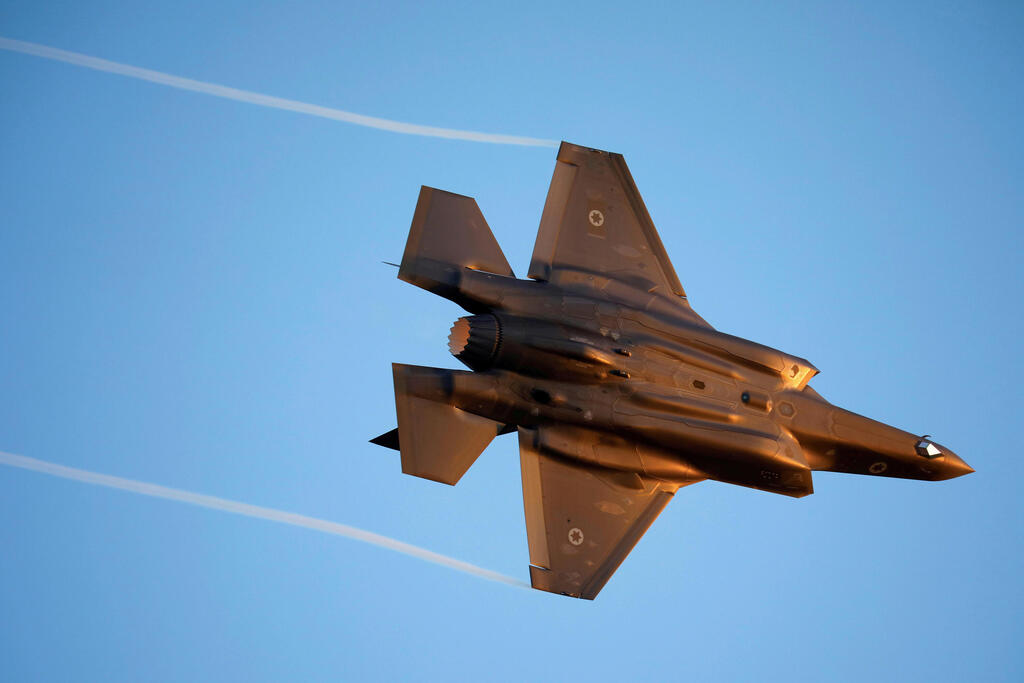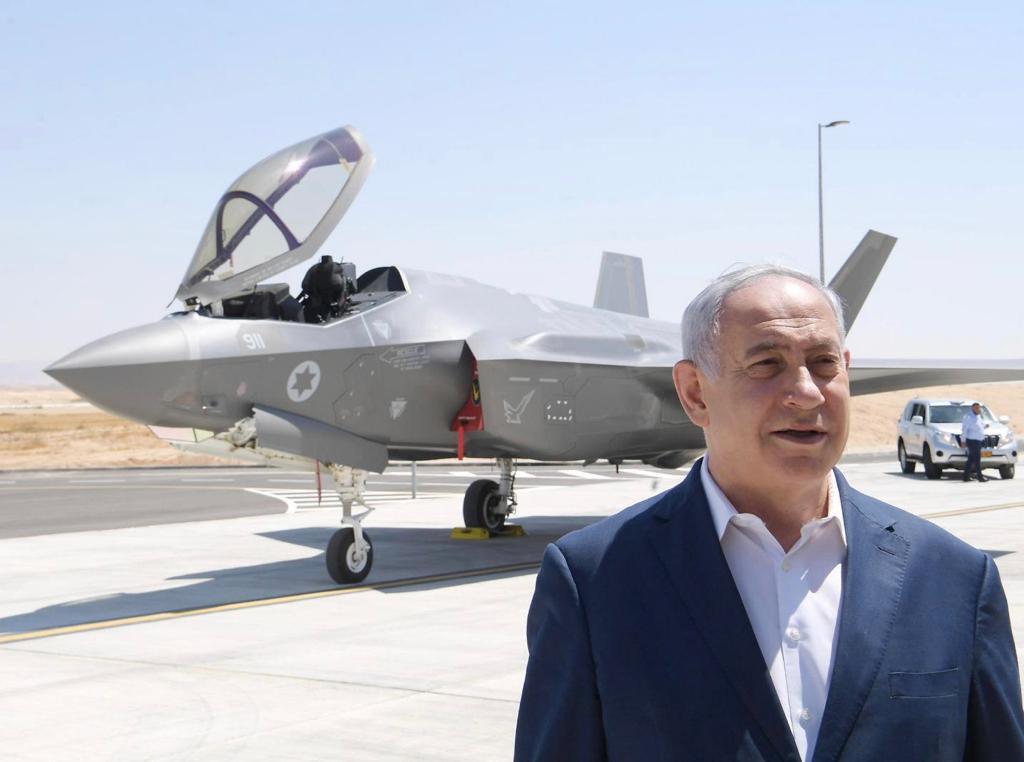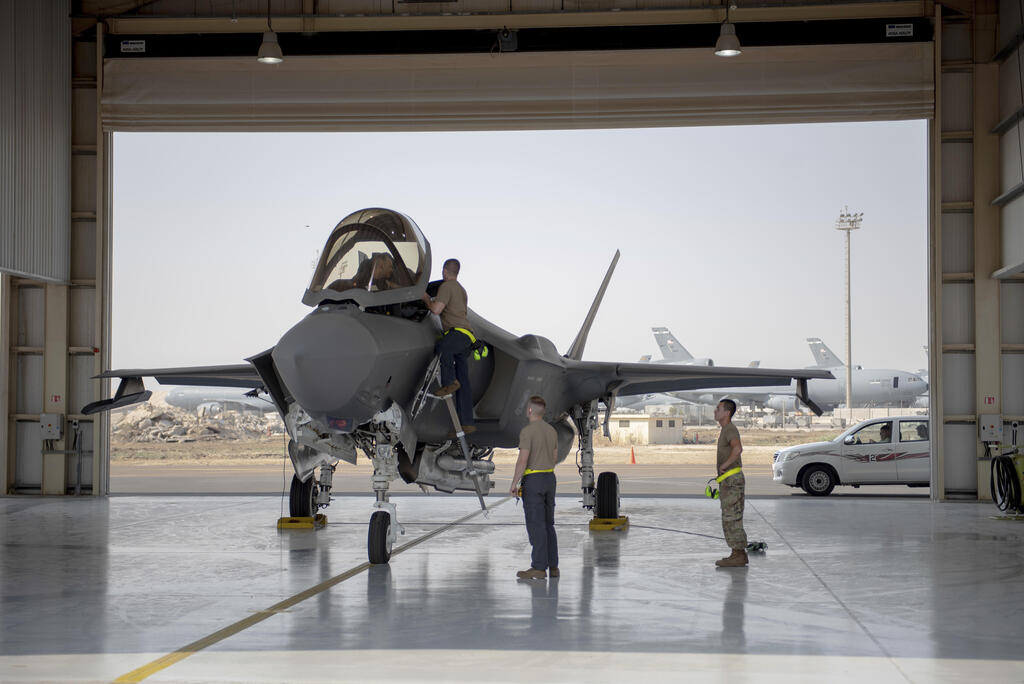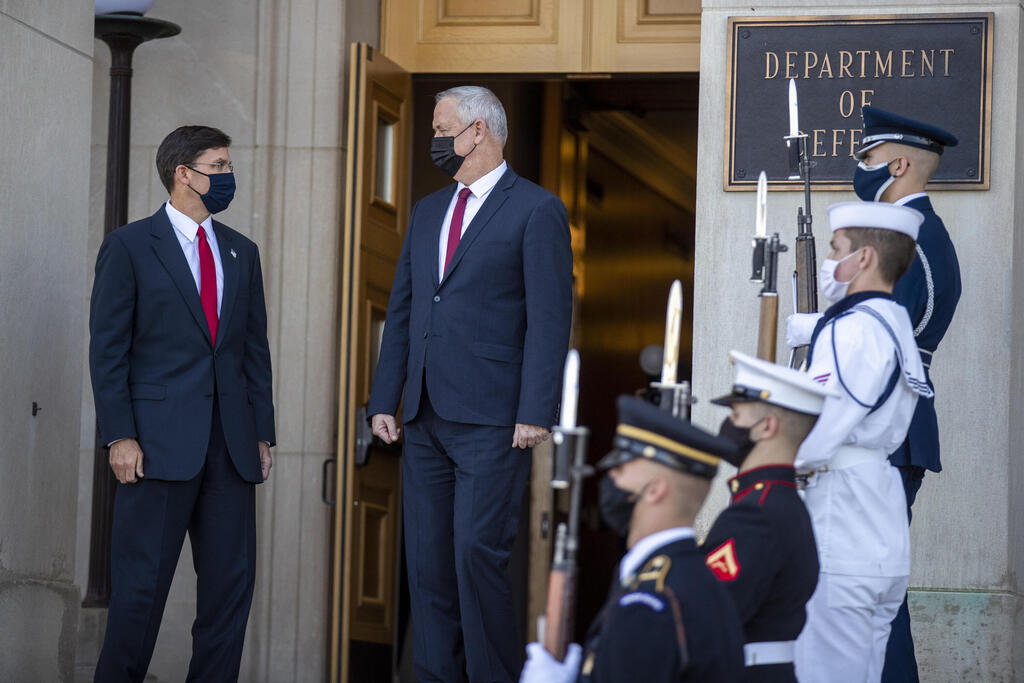Getting your Trinity Audio player ready...
Israel will oppose any U.S. sale of F-35 warplanes to Qatar, Intelligence Minister Eli Cohen said on Sunday, citing a need to maintain Israeli military superiority in the region.
Cohen made the comments on Israeli Army Radio when asked about a Reuters report that Qatar had submitted a formal request to Washington to buy stealthy F-35 fighter jets.
4 View gallery


Israeli Air Force F-35 flies during an aerial demonstration at a graduation ceremony for Israeli air force pilots
(Photo: Reuters)
Asked whether Israel would oppose such a sale, Cohen said: "The answer is yes. Our security and military superiority in the region are the most significant things for us. Our region has still not turned into Switzerland."
The Qatari request follows an August deal between the U.S. and the United Arab Emirates (UAE) in which Washington agreed to consider giving the Gulf state approval to buy F-35s in a side deal to a U.S.-brokered agreement called the Abraham Accord to normalize diplomatic ties with Israel.
The United States and the UAE hope to have an initial agreement on the sale of F-35 stealth fighter jets to the Gulf state in place by December, as the Trump administration studies how to structure a deal without running afoul of Israel.
Any deal must satisfy decades of agreement with Israel that states any U.S. weapons sold to the region must not impair Israel's "qualitative military edge," guaranteeing U.S. weapons furnished to Israel are "superior in capability" to those sold to its neighbors.
With that in mind Washington is studying ways to make the Lockheed Martin Corp F-35 more visible to Israeli radar systems, two sources said. Reuters could not determine if this would be done by changing the jet or providing Israel with better radar, among other possibilities.
Once a letter of agreement is signed, a fine may be levied against any party that terminates the deal. Several political and regulatory hurdles must be cleared before the sale may be completed and Capitol Hill aides cautioned a deal may not be possible this year.
Ellen Lord, the Pentagon's chief weapons buyer, told reporters in August that in general, the United States aims to complete a letter of agreement for new F-35 sales in about six months.
4 View gallery


Prime Minister Benjamin Netanyahu stands flanked by an Israeli Air Force F-35 fighter jet
(Photo: Denfese Ministry)
Because of the qualitative military edge restriction, which is enshrined in American law, the Lockheed Martin-made F-35 has been denied to Arab states while Israel has about 24 jets.
Defense Minister Benny Gantz headed to Washington last month for talks with his U.S. counterpart Mark Esper on maintaining Israel's qualitative military edge in the Middle East following the amid the new political developments and those to come.
Following the meeting, Esper publicly pledged to Gantz that the United States will actively preserve the IDF's military advantage in the area.
The meeting aimed to quell Israeli fears of future turnarounds in Arab countries, as had already happened during the Arab Spring when Mubarak's Egypt fell to the control of the radical Muslim Brotherhood.
As compensation, Israel demanded advanced U.S.-made aircrafts such as F-15 and F-35 fighter jets, transport helicopters, and probably also a V-22 helicopter.
The demands only intensified following the report of the potential U.S.-UAE arms deal, which received a silent agreement from Israel.
The United Arab Emirates, one of Washington's closest Middle East allies, has long expressed interest in acquiring the stealthy jets and was promised a chance to buy them in a side deal made when they agreed to normalize relations with Israel.
Prime Minister Benjamin Netanyahu denied that the deal with the UAE announced last month included the sale of the advanced aircraft, but that was later debunked by American officials and U.S. President Donald Trump, who said he would have "no problem" selling the Gulf states previously denied military hardware.



